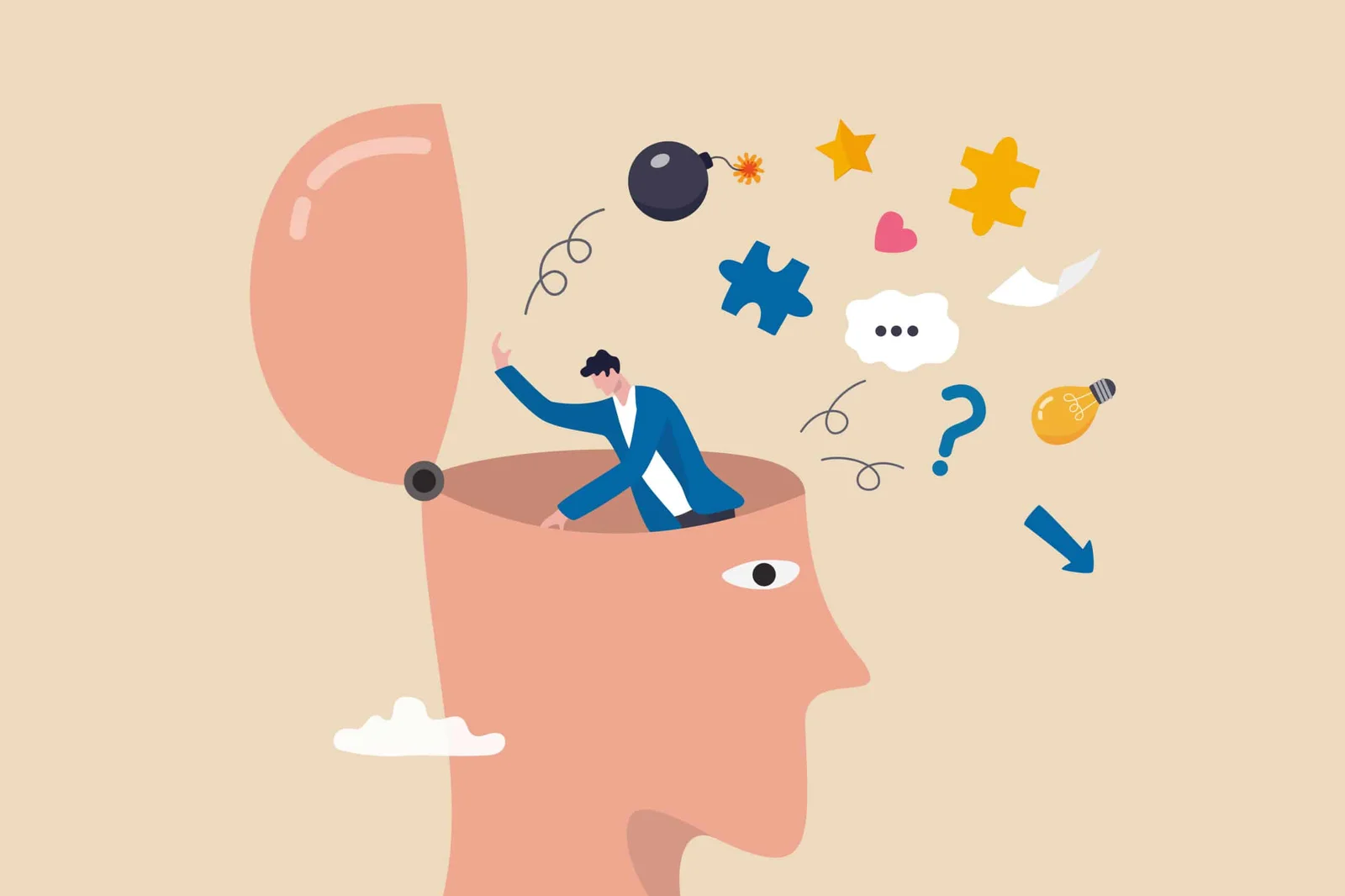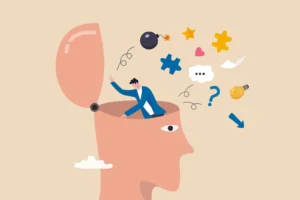
In today’s world of constant connectivity and information overload, mental clarity can often feel elusive. Many people experience “brain fog,” a state of mental cloudiness characterized by difficulty focusing, reduced memory function, and an overall sense of lethargy. The phenomenon of brain fog is increasingly common due to over stimulation from digital devices, high levels of stress, and a general lack of healthy habits. But with the right approach, it’s possible to reclaim your mental clarity and improve productivity.
This article presents three practical and evidence-backed strategies for managing brain fog: avoiding procrastination, organizing tasks to free mental space, and maintaining a foundation of good health. These strategies are designed to help you navigate a busy world without feeling overwhelmed, enhancing focus and boosting overall cognitive performance.
Understanding Brain Fog
Brain fog isn’t a medical condition but rather a symptom of various lifestyle and environmental factors. It can manifest as:
- A lack of mental clarity and focus
- Reduced memory and difficulty retaining information
- A sense of mental fatigue or lethargy
Several factors can contribute to brain fog, including poor sleep, dehydration, high stress, and excessive digital stimulation. Understanding the root causes is the first step in finding solutions that work for you.
Causes of Brain Fog
- Digital Overstimulation: Constant exposure to digital devices and online information fragments our attention and hampers our ability to concentrate.
- Procrastination and Mental Clutter: Leaving tasks unfinished creates a lingering sense of unease and distracts us from focusing fully on other responsibilities.
- Poor Health Habits: Sleep deprivation, inadequate hydration, and lack of exercise can all impact cognitive functions, leading to brain fog.
3 Key Tips for Reducing Brain Fog
1. Manage Digital Overstimulation
Overstimulation from digital devices is a significant contributor to brain fog. Constantly checking social media, emails, and notifications interrupts our focus, leading to fragmented attention. Here’s how to manage overstimulation:
- Limit Screen Time: Schedule specific times in the day to check social media or emails rather than constantly checking throughout the day.
- Use Focus Apps: Apps like Forest, Freedom, or Focus@Will can help block distracting sites and foster a more focused work environment.
- Practice Meditation: Meditation trains the mind to focus on one task at a time, counteracting the scattered attention caused by overstimulation.
Benefits of Reducing Digital Over stimulation
- Improves attention span
- Decreases stress levels
- Increases productivity and mental clarity
2. Avoid Procrastination and Reduce Mental Clutter
Procrastination can significantly contribute to brain fog. When tasks are left incomplete, they linger in the back of our minds, creating a sense of unease. Over time, this mental clutter can drain cognitive resources and make it difficult to concentrate on new tasks. To combat procrastination and free up mental space, try the following:
- Write Down Tasks: Make a list of tasks, goals, or upcoming appointments. This can relieve your brain from the need to remember everything, allowing you to focus more effectively on each task.
- Break Down Large Tasks: Divide tasks into smaller, more manageable steps to make them feel less daunting.
- Establish a Daily Routine: Setting a routine can help organize your day and reduce the chances of procrastination. Knowing exactly what to do next can reduce anxiety and mental clutter.
Benefits of Avoiding Procrastination
- Reduces anxiety related to pending tasks
- Allows for better focus on the present
- Creates a sense of accomplishment and control
3. Prioritize Health for Mental Clarity
Your overall physical health has a substantial impact on mental clarity and cognitive function. Adopting habits that support your physical well-being can improve focus and reduce brain fog.
Key Health Habits for Mental Clarity
- Exercise Regularly: Exercise has been shown to boost mental energy and focus by increasing blood flow to the brain. Activities like walking, jogging, or even weightlifting can help improve cognitive function.
- Stay Hydrated: Dehydration can impair focus and memory. Make it a habit to drink water consistently throughout the day to support brain function.
- Get Quality Sleep: Sleep is essential for cognitive health. Aim for 7-9 hours of uninterrupted sleep each night to allow the brain to rest and recharge.
- Eat Nutritiously: A balanced diet that includes vegetables, fruits, and lean proteins supports mental clarity and overall well-being.
Benefits of Health-Oriented Habits
- Enhances memory and focus
- Boosts mood and energy levels
- Improves resilience to stress and mental fatigue
Additional Tips for Improving Mental Clarity
- Practice Deep Breathing: Techniques like diaphragmatic breathing can help lower stress and create a sense of calm, improving mental clarity.
- Engage in Hobbies: Creative activities like painting, playing an instrument, or writing can provide mental relief from work-related stressors.
- Connect with Nature: Spending time outdoors, whether in a park or a forest, can help clear the mind and reduce symptoms of brain fog.
FAQs on Brain Fog and Mental Clarity
Q: What is the main cause of brain fog?
A: Brain fog can be caused by several factors, including digital overstimulation, procrastination, and poor health habits such as inadequate sleep and hydration.
Q: How does exercise improve mental clarity?
A: Exercise increases blood flow to the brain, promoting cognitive function and releasing endorphins that enhance mood and focus.
Q: Can meditation help reduce brain fog?
A: Yes, meditation is highly effective in reducing brain fog. It helps the mind focus, improves concentration, and reduces mental clutter.
Building a Daily Routine for Mental Clarity
Here’s an example of a simple routine that can help you combat brain fog:
- Morning: Start the day with a glass of water, a short meditation session, and a quick workout.
- Midday: Take a few minutes for deep breathing exercises and enjoy a nutritious lunch.
- Afternoon: Write down any remaining tasks for the day to stay organized and focused.
- Evening: Limit screen time, especially before bed, and engage in a relaxing activity like reading or journaling.
- Night: Practice good sleep hygiene by avoiding caffeine late in the day and establishing a consistent bedtime.
Conclusion: Achieving Lasting Mental Clarity
Combating brain fog isn’t a one-time effort but a combination of healthy habits that require regular practice. With these tips on managing overstimulation, avoiding procrastination, and prioritizing health, you can gradually reduce brain fog and achieve greater mental clarity. Remember that clarity comes from a consistent approach to both mental and physical well-being, making it easier to navigate everyday challenges with a clear and focused mind.















